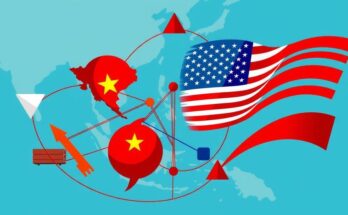President Trump’s imposition of tariffs on imports from Mexico, Canada, and China has prompted swift and vigorous condemnation from these nations, who plan retaliatory measures. This escalation in trade tensions raises concerns about the economic impact on both sides and highlights the interdependence between the U.S. and its closest trade partners.
Recent tariffs imposed by President Donald Trump on imports from Mexico, Canada, and China have elicited widespread condemnation from these nations and several others. Trump instituted a 25 percent tariff on goods from Mexico and Canada and a 10 percent tariff on imports from China, claiming a national emergency due to drug trafficking and illegal immigration. In response, Canada and Mexico announced retaliatory tariffs, and China’s officials noted the detrimental effects of a trade war, emphasizing that no party would benefit from this conflict.
The decision to impose significant tariffs comes as part of President Trump’s broader strategy to bolster U.S. economic interests and address issues related to drug trafficking and immigration. The immediate reactions from affected countries, particularly Mexico and Canada, underline the potential consequences of these tariffs on cross-border trade and the economy. Economic analysts emphasize the deep interdependence between the U.S. and its trading partners, particularly in sectors such as manufacturing and agriculture.
In conclusion, President Trump’s recent tariff measures have ignited a fierce international backlash, prompting Mexico and Canada to impose their own tariffs in retaliation. The broader implications of this trade conflict may lead to economic repercussions that could affect American consumers and businesses. Additionally, there are calls for dialogue to mitigate the damage and avoid an escalating trade war.
Original Source: www.aljazeera.com




